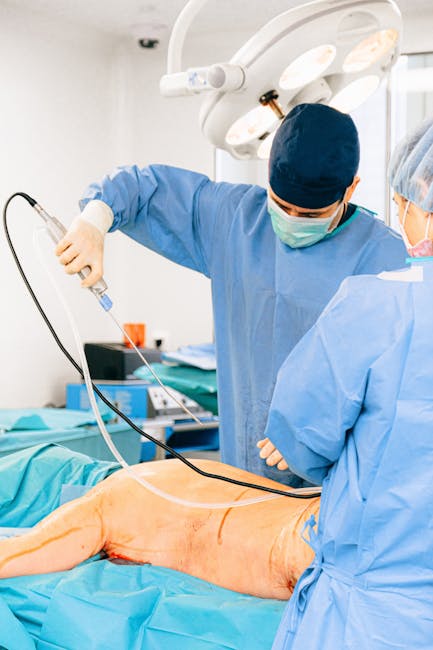How to Choose a Surgeon for Your Child's Plastic Surgery
 Children who are unhappy with their appearance may benefit from plastic surgery, but these procedures aren't for everyone. Parents should carefully choose a doctor who is well-trained and trustworthy, and look for a board-certified plastic surgeon. This certification signifies that the doctor has completed a rigorous process of training and testing. Here are some tips to help you choose the right surgeon. Read on now:
Children who are unhappy with their appearance may benefit from plastic surgery, but these procedures aren't for everyone. Parents should carefully choose a doctor who is well-trained and trustworthy, and look for a board-certified plastic surgeon. This certification signifies that the doctor has completed a rigorous process of training and testing. Here are some tips to help you choose the right surgeon. Read on now:The term plastic surgery is not a joke. The word comes from the Greek word plastikos, meaning "form" and also the name of plastic material. Plastic surgery is an excellent way to change your appearance and even your function. Several reconstructive surgeries can correct physical birth defects, injuries, and disease treatments. Cosmetic procedures can also help you achieve a more youthful appearance. In the first instance, you can have a chin implanted for a better smile.
After consulting with your primary care physician, consider private plastic surgery. While private plastic surgery may be more affordable than public options, it can still be expensive. Regardless of the type of plastic surgery you need, a consultation with a surgeon can help you determine whether it's right for you. It's also important to remember that there are risks involved. A doctor should discuss potential complications, and explain how recovery will be affected by the surgery. During recovery, you'll be dealing with bruising and swelling. A plastic surgeon should always answer your questions and concerns, and discuss any possible complication with you before surgery.
Aside from addressing physical imperfections, plastic surgeons can correct disorders of the integument, such as deformity. They are also skilled in the management of complex wounds and implants. Plastic surgeons also have special training in microvascular surgery, cranio-maxillofacial surgery, and liposuction. In addition to having extensive training, plastic surgeons should also have excellent interpersonal skills and a passion for improving the lives of others.
Children can benefit from reconstructive plastic surgery. The department is closely linked with the Division of Pediatric Surgery to provide comprehensive restorative care. In addition to pediatric plastic surgery, a cleft lip and palate service is run by plastic surgeons in collaboration with other pediatric specialists. Several members of the department have extensive experience treating children with cleft lip and palate. They can also correct a wide variety of hand and trunk anomalies. These treatments are not only cosmetic, but can improve a person's quality of life.
Cosmetic surgery may also help improve a person's self-esteem. This type of surgery is typically covered by the NHS, though it varies depending on the clinical commissioning group in their area. A plastic surgeon will have advanced training and memberships in medical associations. A plastic surgeon should be able to assess a patient's needs and determine whether or not it is the right procedure for them. If you are self-critical or depressed, plastic surgery may not be the right choice for you. If this is the case, seek counseling from dr. tracy pfeifer therapist.
While reconstructive surgery has long been legal, there have been debates about the boundaries of aesthetic surgery. In some areas, cosmetic surgery has no therapeutic purpose and is considered a lower priority than other forms of medical intervention. Today, however, cosmetic surgery has achieved substantial equivalence with other branches of medicine, and a broader definition of health, which includes psychological well-being, has made it a legitimate field of medicine. The goal of the field is to help patients with aesthetic and functional goals. You can get more enlightened on this topic by reading here: https://en.wikipedia.org/wiki/Culture_of_cosmetic_surgery.
